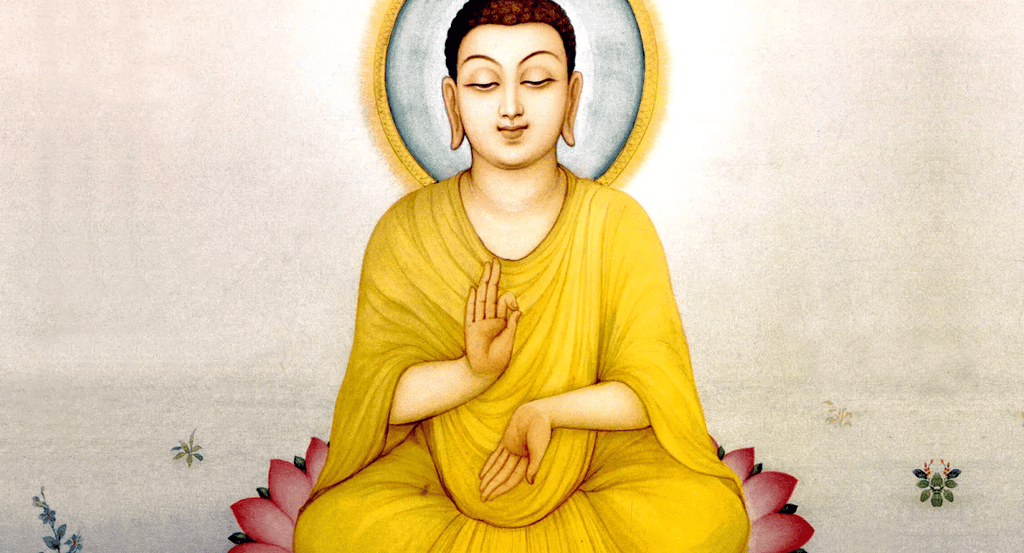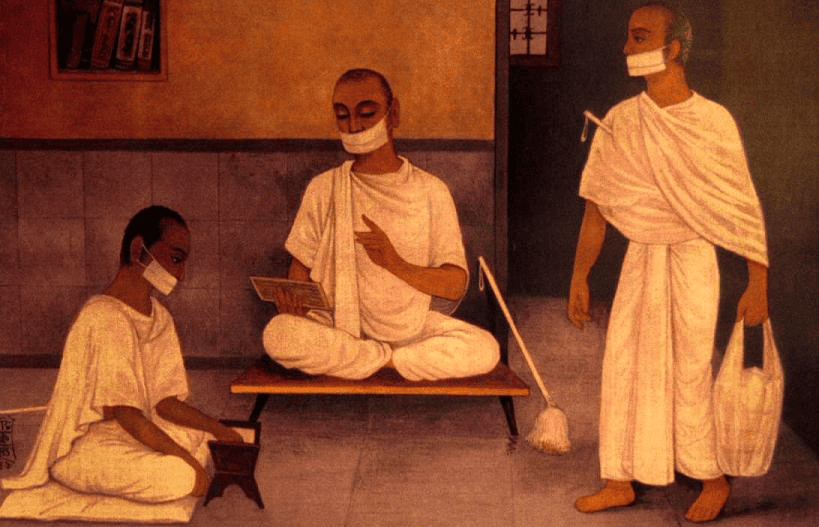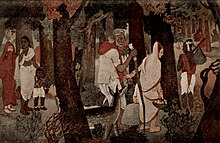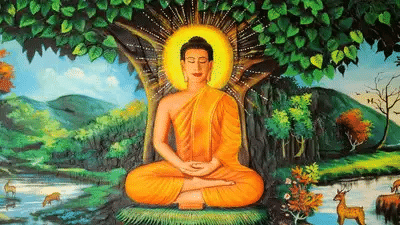Very Short Question Answers: New Questions & Ideas | Short & Long Answer Questions for Class 6 PDF Download
Q1: What was the early name of Buddha?
Ans : Siddhartha
Q2: Where did Buddha attained enlightenment?
Ans : He attained enlightenment in Bodh Gaya.
Q3: Who was the founder of Buddhism?
Ans : Siddhartha, also known as Gautama.
Q4: Buddha belonged to a small Gana known as the __________.
Ans : Sakya gana
Q5: Why did Buddha left the comforts of his home?
Ans : He left the comforts of his home in search of knowledge.
Q6: The tree under which Buddha meditated for several days was a Mango tree. True/False
Ans : False
Q7: Buddha gave his first sermon in _______.
Ans : Sarnath
Q8: Name the language in which Buddha preached?
Ans : He preached in Prakrit language, spoken by common people.
Q9: Upon what, was the Buddha's main teaching was based on?
Ans : Life is full of sufferings and unhappiness.
Q10: What was the language of the ordinary people?
Ans : Prakrit

Q11: The term 'Tanha' in Buddhist teaching means _____.
Ans : Thirst
Q12: Thirst is used in Buddhist teachings to explain desires of humans. True/False
Ans : True
Q13: For what Gargi was famous?
Ans : Learning
Q14: Who was Satyakama Jabala?
Ans : Satyakama Jabala was poor but managed to become the best known thinkers of that time.
Q15: Name the person who accepted Satyakama as a student.
Ans : Gautama
Q16: The ideas of the Upanishads were later developed by the famous thinker ____________.
Ans : Shankaracharya
Q17: Who were Jainas?
Ans : Followers of Mahavira
Q18: How was the lifestyle of Jainas?
Ans : They had to lead very simple lives, begging for food.
Q19: Panini prepared grammar for_______.
Ans : Sanskrit
Q20: How did Panini prepared grammar for Sanskrit?
Ans : He arranged the vowels and the consonants in a special order and created formulas like those found in Algebra.

Q21: What were Lichchhavis?
Ans : A clan that was a part of the Vajji janapada.
Q22: Where was the headquarters of The Lichchhavis?
Ans : Vaisali
Q23: Who was Vardhamana Mahavira?
Ans : He was the prince of the Lichchhavis, a group that was part of the Vajji sangha.
Q24: Maghadhi was Prakrit language spoken in__________.
Ans : Maghadha
Q25: A person who became a follower of Mahavira had to__________.
Ans : Observe celibacy
Q26: Why did Farmers could not support Jainism?
Ans : Farmers had to kill insects to protect their crops.
Q27: Where is Valabhi situated?
Ans : Gujarat
Q28: Both Mahavira and Buddha felt that only those who left their homes can gain true knowledge. True/False
Ans : True
Q29: What was the name of an association of those who left their homes.
Ans : Sangha
Q30: Name the book in which the rules made for the Buddhist sangha were written down.
Ans : Vinaya Pitaka

Q31: What was the Vanaprastha stage?
Ans : Stage that emphasised, meditation and life in the forest.
Q32: Buddha was approached by a woman to bring back the life of her deceased son. What was the name of the lady.
Ans : Kisagotami
Q33: Gautama Buddha passed away at _____________.
Ans : Kusinara
Q34: "All beings long to live", who made this statement?
Ans : Mahavira
Q35: Who all joined the Sangha?
Ans : Merchants , labourers and slaves.
Q36: Why Mahavira is called Jina?
Ans : For conquering pleasure and pain.
Q37: White clothes were worn by the followers of Jainism/Buddha
Ans : Jainism
Q38: Name the Brahman teacher who accepted Satyakama Jabala as a student.
Ans : Gautama
Q39: Jainism was primarily supported by _________.
Ans : Traders
Q40: Vardhamana Mahavira asked his followers to strictly follow the doctrine of_____________.
Ans : Ahimsa

FAQs on Very Short Question Answers: New Questions & Ideas - Short & Long Answer Questions for Class 6
| 1. What are some new ideas that can be explored in class 6? |  |
| 2. How can teachers encourage students to share their ideas in class? |  |
| 3. What are the benefits of discussing new ideas in class? |  |
| 4. How can students come up with new ideas for their projects? |  |
| 5. What role do parents play in supporting new ideas in their child's education? |  |

















